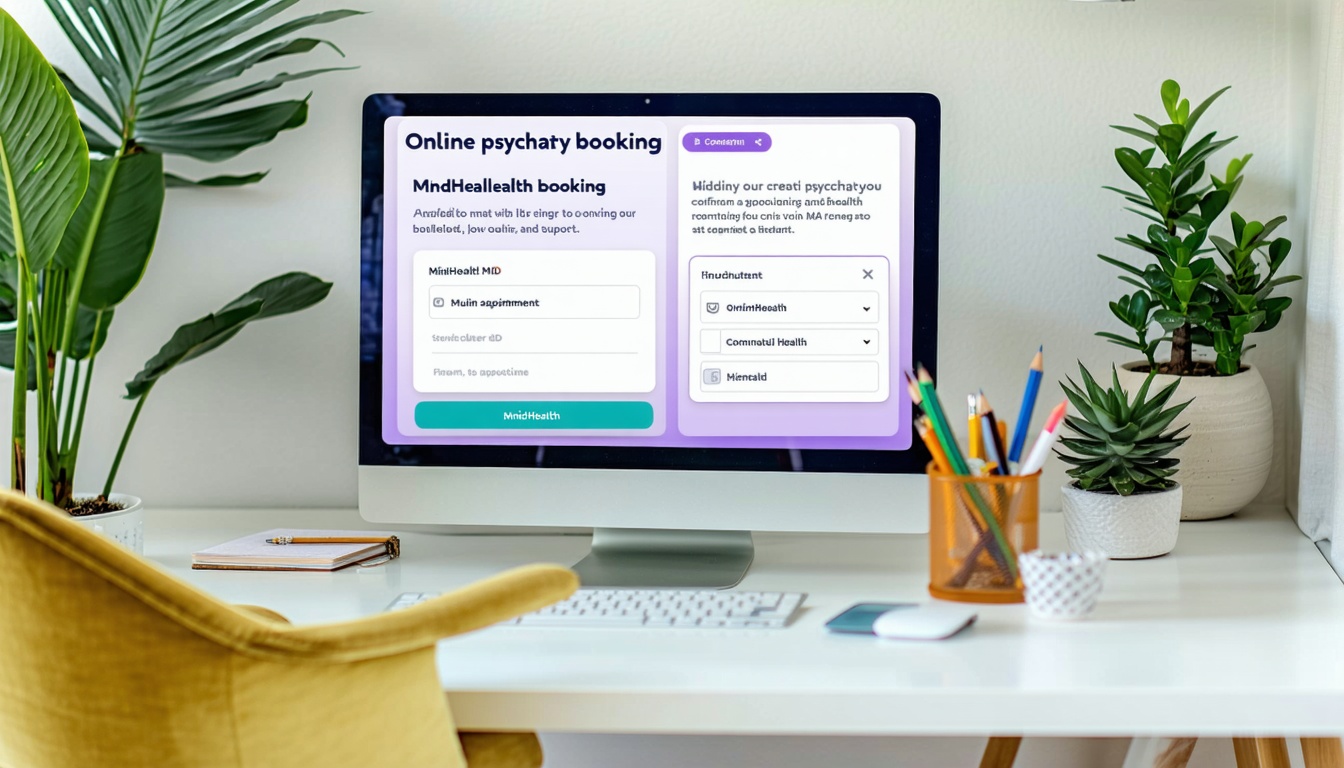Understanding substance use disorders
Have you ever wondered why it can feel so tough to break free from a habit, especially one involving drugs or alcohol? That struggle is real, and it’s exactly where a dedicated substance use psychiatry service can make a meaningful impact. You might have heard about substance use disorders (SUDs) in passing, but understanding their complexities can be a real game-changer for you or someone you love.
When we talk about a substance use disorder, we’re referring to more than a simple case of “too much partying.” It’s a condition that involves changes in the brain, causing intense cravings and making it extremely difficult to stop without professional support. In 2023, roughly 54.2 million people age 12 and older required substance use treatment, yet only 23.6% received the necessary help [1]. That’s a big treatment gap, especially considering the toll that addiction takes on well-being, finances, and family relationships.
Below, we’ll explore why it’s vital to seek professional psychiatry care for substance use, how telehealth is reshaping treatment accessibility, and how MindHealth MD stands ready to help you or your loved ones embrace lasting recovery.
Recognizing why professional help matters
Many people try to handle a substance use problem on their own. Willpower is great, but addiction tends to override good intentions. Substance use typically leads to shifts in the brain’s reward system, weakening self-control over time [2]. This makes quitting incredibly tough without medical and therapeutic intervention.
Professional treatment addresses both the physical and mental aspects of addiction. It includes:
- Evidence-based therapies (like Cognitive-Behavioral Therapy)
- Medication management to curb cravings and manage withdrawal
- Support and guidance from trained professionals
It’s about more than simply putting down the bottle or syringe. It’s about adopting healthier habits, learning coping skills, and avoiding relapse triggers for the long haul.
Discover the telehealth advantage
For many individuals in rural or underserved areas, distance and a lack of local resources can be serious barriers to getting care. Even if you live in a bustling city, your schedule might not permit frequent in-person appointments. That’s where telehealth psychiatry steps in and transforms the playing field, making critical support accessible from virtually anywhere.
Overcoming logistical barriers
States with low populations have fewer substance use treatment facilities, making it challenging for residents to find help within driving distance [1]. Telehealth flips the situation by bringing the appointment to you. Instead of a long commute, you can schedule a telepsychiatry appointment at a convenient time. This flexibility not only reduces stress but also raises the odds that you’ll stick with treatment for however long you need.
Meeting patients where they are
In addition to bridging geographic gaps, telehealth is simply a great match for modern life. Imagine getting professional guidance from the comfort of your home or anywhere you happen to be. If transporting yourself to a clinic feels overwhelming, or if your job makes it complicated to set aside several daytime hours, virtual sessions give you the chance to prioritize your well-being without derailing your routine.
Online consultations often help people who feel anxious about setting foot in a doctor’s office. Stigma remains a problem for those dealing with addiction [3]. A confidential virtual session can minimize potential discomfort and reassure you that your journey stays private.
Leverage medication-assisted treatment
For certain types of addiction, particularly opioid or alcohol dependency, medication is often beneficial. This process, called medication-assisted treatment (MAT), combines FDA-approved medications with traditional talk therapy. It can be remarkably effective in reducing cravings and sustaining long-term recovery. Statistics show that medications like buprenorphine or methadone for opioid addiction can help normalize brain chemistry and block the euphoric effects of the substance [4].
Opioid addiction support
Opioids are notoriously difficult to quit because the withdrawal symptoms can be incredibly uncomfortable, if not downright painful. However, there are proven medications and methods to help you on your journey. If you or a loved one is struggling with opioids, consider medication assisted treatment to mitigate both cravings and withdrawal. You might also be a candidate for mat for opioid addiction, which specifically targets opioids.
Alcohol dependency solutions
Alcohol use disorder remains one of the most common forms of substance use disorder in the U.S. [5]. Similar to opioids, alcohol dependence rewires parts of the brain responsible for reward and self-control. Certain FDA-approved medications, such as naltrexone and acamprosate, can reduce cravings, making it easier to resist the pull to drink. If alcohol dependency is taking over your life, exploring mat for alcohol dependency can be a practical step toward recovery.
Some people see MAT as a last resort, but it doesn’t need to be. Think of it as one piece of a broader puzzle, combining behavioral therapy, counseling, and lifestyle changes to create a holistic blueprint for a sober life.
Explore TMS therapy benefits
If you’re unfamiliar with Transcranial Magnetic Stimulation (TMS), here’s a brief overview: TMS is a noninvasive procedure that uses magnetic fields to stimulate nerve cells in your brain. It’s widely recognized for helping with treatment-resistant depression, but it can also support patients with co-occurring mental health conditions that often align with substance use disorders.
How TMS helps
TMS is especially helpful for those experiencing depression alongside addiction. Because addiction commonly coexists with mental health challenges, a therapy like TMS can simultaneously uplift your mood while you work on other aspects of recovery. If you’re interested, you can schedule tms treatment to find out if you qualify. You might also explore tms therapy for depression, since depression often plays a critical role in sustaining unhealthy substance use behaviors.
When TMS may be recommended
Although TMS is not a standalone cure for addiction, it could be a valuable adjunct therapy if you’ve tried standard approaches (e.g., medication, talk therapy) and still grapple with your symptoms. A provider might recommend TMS when traditional methods have stalled, or when persistent depressive symptoms put you at risk of relapse. If you want to know more about local providers, consider searching for transcranial magnetic stimulation providers.
Why choose MindHealth MD
In a market flooded with different treatment options, deciding which one to trust can feel overwhelming. We get it, and we know how crucial it is to find a caring environment that understands your specific needs. At MindHealth MD, our mission revolves around delivering a compassionate substance use psychiatry service that respects your schedule, supports your goals, and works together with the rest of your life.
Personalized care approach
One size never fits all in recovery. Each individual has distinct triggers, histories, and co-occurring issues. We tailor each treatment plan to reflect who you are and where you want to go. That might mean combining telehealth sessions with in-person evaluations or exploring co occurring disorders treatment if you’re dealing with other mental health challenges, such as anxiety or PTSD. MindHealth MD also considers your personal schedule so that weekly or monthly sessions never need to be a burden.
State-of-the-art programs
We’re always exploring cutting-edge therapies and technology to boost your possibility of success. For instance, you might benefit from eeg brain mapping test to get a clearer picture of how your brain functions. This test can lend insights that inform your treatment, helping us pinpoint the best approach from day one. If you need medication adjustments along the way, our psychiatric medication management services can keep you on-course with minimal disruption to daily life.
Insurance acceptance and flexible logistics
Financial worries keep many people from pursuing rehab or therapy. The good news is that MindHealth MD offers insurance accepted psychiatry, which can significantly reduce the out-of-pocket burden. You’d be surprised how many insurance plans cover telehealth. If you’re not sure if your policy qualifies, consider reaching out to our in network psychiatry care team for clarification.
We also realize that urgent help can’t wait weeks. That’s why we have options like immediate psychiatry appointment, 48 hour psychiatry booking, and same day psychiatric evaluation. These convenient scheduling features let you address pressing concerns fast, rather than enduring a lengthy wait time that could lead to relapse or other health complications.
Key pillars of our service
Below is a quick rundown of what sets MindHealth MD apart:
- Multidisciplinary expertise
- Psychiatrists, therapists, TMS specialists, and other experts under one roof
- Collaboration to tackle both mental health and addiction
- Personalized treatment planning
- Tailored therapy modules to address adult, adolescent, and family needs
- Focus on your social, emotional, and practical challenges
- Technological innovations
- Advanced treatments such as TMS therapy for depression
- EEG diagnostic for mental health to refine your plan
- Accessible care
- Telehealth mat consultation if in-person visits aren’t feasible
- Insurance accepted psychiatry to ease financial burdens
- Integrated aftercare
- Follow-ups to keep you motivated
- Resources like post discharge psychiatry care for ongoing stability
How to start your journey
Whether you’re seeking help for yourself or a loved one, the first step often feels like the hardest. At MindHealth MD, we strive to make that initial move as easy as possible so you can focus on healing, not on logistics.
Booking an appointment
When you’re ready, scheduling is straightforward. You can book psychiatric appointment by visiting our portal or calling our friendly support line. Tell us about your situation, any immediate concerns, and what kind of schedule works best for you. We’ll help you decide if a virtual psychiatry session fits your lifestyle, or if you’d prefer an in-office visit.
Preparing for your first session
For your first appointment, you’ll typically fill out a brief assessment of your symptoms. This background information paints a clearer picture of your condition. If you’re considering medication-assisted treatment, consider reviewing resources like how to start mat program so you understand the process.
When your session date arrives, expect a relaxed virtual or in-person conversation. We’ll discuss your health history, what your triggers might be, and how you feel about medication. After that, we’ll outline a personalized plan together.
Addressing dual diagnoses
A large number of individuals with substance use disorders also deal with co-occurring conditions like depression, anxiety, or PTSD [6]. In this scenario, treatment has to consider everything, not just the addiction. Otherwise, unresolved mental health issues can provoke relapse or stall progress. If you suspect you might fall into this category, you can look into our dual diagnosis psychiatric program or co occurring disorders treatment for comprehensive care.
Strategies for staying engaged
Recovery isn’t a quick fix. It’s an ongoing process with ups and downs. Here are a few tips to keep you motivated:
- Keep scheduled appointments. Whether in-person or through a telehealth mat consultation, consistency strengthens the therapeutic bond.
- Build a support network. Lean on trusted friends, family, or local support groups like Narcotics Anonymous or Alcoholics Anonymous.
- Identify triggers. Work with your therapist to figure out the situations, emotions, or social settings that could push you toward using again.
- Celebrate small victories. Did you manage a stressful day without turning to substances? Give yourself credit. Small steps lead to big changes.
If you hit a bump, don’t panic. Relapse can be part of a chronic condition like substance use disorder [7]. It doesn’t mean you’ve failed. Instead, let it serve as a signal to seek added support, re-evaluate your treatment plan, and keep trying.
Addressing stigma and self-judgment
One crucial challenge that you or your family members might face is the stigma surrounding substance use. Often, people delay seeking help because they fear being labeled as “weak” or “undeserving.” This is where a compassionate, user-friendly environment makes all the difference. With MindHealth MD, you receive judgment-free care. We recognize that addiction is a medical condition, not a moral shortcoming, and we’re here to guide you toward health and hope.
Holistic therapies to enhance recovery
Beyond medication and talk therapy, exploring holistic therapies can further support your journey. Maybe you’ve heard of Dialectical Behavior Therapy (DBT) or Experiential Therapy. DBT focuses on skill-building to regulate emotion and handle stress, and Experiential Therapy involves hands-on activities like role-playing or guided imagery [8]. Each approach aims to deepen self-awareness and help you manage cravings in real-life situations.
If you’re dealing with traumatic experiences tied to your addiction, Eye Movement Desensitization and Reprocessing (EMDR) might be an option. EMDR helps you process and desensitize traumatic memories so they lose the power to trigger destructive behaviors [9]. We often recommend incorporating these therapies to enrich your overall treatment program.
Table: Overview of Holistic Treatment Options
| Therapy | Focus | Potential Benefits |
|---|---|---|
| DBT (Dialectical Behavior Therapy) | Emotion regulation, interpersonal skills | Helps decrease self-destructive behaviors |
| Experiential Therapy | Hands-on methods (role-play, art, etc.) | Encourages self-expression and personal insight |
| CBT (Cognitive-Behavioral Therapy) | Identifying and changing destructive thoughts | Reduces negative thought patterns, improves coping |
| EMDR | Processing traumatic memories | Alleviates stress responses, lowers relapse risks |
Each therapy shines a spotlight on different aspects of your mental and emotional framework, offering a customized route to healing.
Family involvement and support
Substance use disorders don’t only affect the individual who’s using substances. Families often experience emotional pain, stress, and strained relationships. Research shows that family support can be a deciding factor in treatment success [3]. At MindHealth MD, we encourage family members to become involved whenever possible, offering sessions that help strengthen communication, boundaries, and mutual understanding.
You might even find it beneficial for a loved one to undergo their own therapeutic support. Call to refer patient psychiatry if you want to help a relative or friend who seems hesitant or unsure about seeking care.
FAQs
Below are five frequently asked questions we often hear about substance use, telehealth, and what MindHealth MD can offer:
- How do I know if I truly need professional care?
- If your substance use is affecting your relationships, job, or mental health, it’s time to consult a specialist. A formal evaluation can determine if you meet clinical criteria for substance use disorder.
- What if I don’t have insurance?
- We accept many insurance plans to lower costs, but if you’re uninsured, we also offer self pay psychiatry session options. Our finance team can guide you about payment plans, ensuring you have a way to move forward without excessive financial stress.
- Does telehealth psychiatry really work as well as face-to-face visits?
- Many studies show telehealth appointments are just as effective in managing addiction and mental health conditions. Plus, virtual sessions reduce logistical hurdles like travel time, which means better consistency in attending appointments.
- Can I use medication-assisted treatment while receiving TMS?
- Absolutely. In fact, using several methods in tandem often delivers better outcomes. If you’re unsure about combining therapies, consult our transcranial magnetic stimulation providers or schedule a telepsychiatry appointment to discuss your personalized plan.
- What if I have a mental health crisis and need urgent assistance?
- Our mental health urgent appointment slots could help you promptly. In emergency scenarios where immediate in-person intervention is required, please contact local emergency services or go to the nearest hospital.
Next steps toward better health
Substance use disorders can seem isolating, but you’re far from alone. By linking modern medicine with technology and compassion, MindHealth MD aims to be the partner you need at every stage of recovery. That might mean taking advantage of our psychiatric stabilization care, combining it with a TMS consultation, or focusing on talk therapy while exploring medication options. Regardless of the route, you don’t have to do this solo.
We know committing to change might feel huge. Yet every great journey starts with a single step. If that first leap is simply asking a question or initiating a conversation, we’re here to answer. From the moment you reach out for help, you’ll see that our attention is on you, your goals, and your comfort with the process.
You have the power to reshape your life. We can help you get there. Let’s work together to map out a plan that fits your lifestyle, harnesses the latest in medical research, and keeps you supported every step of the way. A substance use psychiatry service, coupled with telehealth, MAT, and TMS, might be the key to a stronger, healthier tomorrow—one in which you wake up each day feeling hopeful, motivated, and in control of your future.
Ready to get started
Feeling eager to make a change? Or maybe you’re simply curious about the process? Either way, our team is ready to answer your questions, schedule an initial consultation, or discuss any hesitations you might have. We see the big picture: Physical health, mental well-being, and a personalized recovery plan woven together for the best possible outcome.
Your life shouldn’t revolve around substance use or the fear of relapse. When you decide to trust MindHealth MD with your care, you’re placing your recovery in the hands of people who genuinely believe in healing, progress, and a fresh start. Don’t wait any longer. Reach out today for the help you deserve and the healthy life you’ve been longing for.








